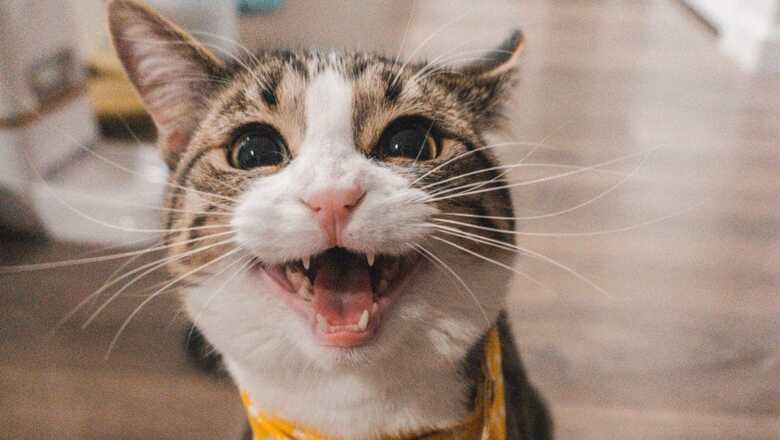
views
A Vietnamese restaurant which was killing up to 300 cats a month for making a cat soup recipe was shut down after its 37-year-old owner, Pham Quoc Doanh, voiced his moral concerns with the practice.
The Humane Society International (HSI) announced that Pham Quoc Doanh tore down the advertisement for the cat soup recipe – known as “thịt mèo” (cat meat) – outside his Gia Bảo restaurant in the Thịnh Đán ward of Thái Nguyên in early December. Once he tore down the sign, at least 20 cats and kittens which were supposed to be drowned to meet the eatery’s demand were freed and placed for adoption.
Doanh told news agencies that he was pushed into the cat meat market because he wanted to make ends meet and he never wanted to sell cat meat. Reports by the Metro said cat meat is a relatively popular dish in Vietnam.
“Before selling cat meat at this restaurant I served other normal food and drinks. However, the income was not enough to cover the living cost of my family. It was then I tried selling cat meat since there was no other available restaurant serving this in the area,” Doanh was quoted as saying by the Metro.
The HSI said that about 1 million cats — mostly stolen pets and strays — are killed for meat per year in Vietnam. The Metro report also said that polls in Vietnam showed that 87% of people in the Asian nation have had their pet mysteriously stolen, or know someone whose pet was taken.
HSI also helped Doanh by affiliating him to their Models for Change program and gave him a one-time grant to close his restaurant and set up a grocery store. Doanh reached out to them because he could not bear the suffering of these voiceless animals.
Doanh told the news outlet that he drowned the cats by holding them down with a stick in a bucket of water. “I felt sorry for them when I saw them suffering during slaughtering. It was all about money since I had to make money for my whole family,” he said.
The cats taken from Doanh’s custody were taken to the Thai Nguyen University of Agriculture and Forestry to be vaccinated against rabies before being adopted.
Vietnam’s cat meat industry cannot be regulated because the animals are not considered livestock and thus farmers do not have to register their data.
“Now that I’ve closed my cat slaughter business, I feel more peaceful in my mind and feel confident and happy about my future,” Doanh said.

















Comments
0 comment